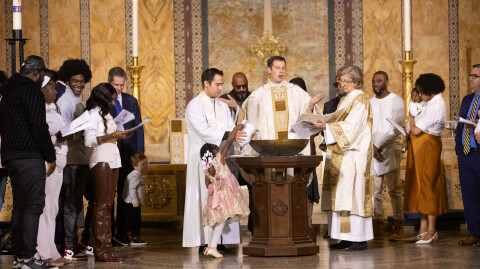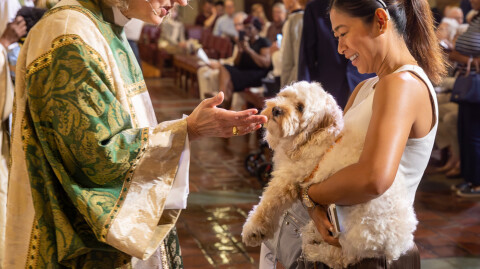There’s been a lot of talk about unity over the past few days. On cable news shows, across newspaper pages, and in social media feeds, Americans have wondered how, if at all, we can possibly come together. Our new President invoked unity during his inaugural address in the Capitol rotunda. At Washington National Cathedral the next day, Bishop Mariann Edgar Budde preached a sermon that made a lot of Episcopalians proud. Unity was her subject.
The controversy that arose following Bishop Budde’s sermon centered chiefly on her final plea for mercy towards vulnerable populations like LGBTQ+ people and immigrants. Critics characterized her plea as “political” and therefore divisive—as a perpetuation, if not acceleration, of our partisan rifts. They saw her as the opposite of a unifier.
But, whatever one may think about having a “national” cathedral or holding a prayer service in conjunction with an inauguration or the practice of speaking to a President directly from the pulpit, Bishop Budde’s fusion of a call to unity with a plea for the most vulnerable has ample Scriptural precedent.
In fact, in the reading assigned to this coming Sunday from Paul’s first letter to Corinthians, the project of unity and our efforts to protect the most vulnerable are explicitly intertwined. Paul clearly believes that no one is expendable: “The eye cannot say to the hand, ‘I have no need of you,’ nor again the head to the feet, ‘I have no need of you.’” Yet some parts of the body, he explains, deserve more attention than others. “The members of the body that seem to be weaker,” he writes, “are indispensable, and those members of the body that we think less honorable we clothe with greater honor, and our less respectable members are treated with greater respect; whereas our more respectable members do not need this. But God has so arranged the body, giving the greater honor to the inferior member, that there may be no dissension within the body.” We achieve unity, he suggests, by prioritizing the needs of the weakest, by elevating those who have been treated with the least amount of honor and respect. We cannot truly be united if we leave the most vulnerable behind.
Roman Catholic liberation theologians of the mid-twentieth century wrote about what they called “the preferential option for the poor.” Followers of Christ, they claimed, should always put the needy and powerless first. In another reading assigned for this coming Sunday, from Luke’s Gospel, Jesus stands up in the synagogue and reads aloud from the prophet Isaiah: “The Spirit of the Lord is upon me, because he has anointed me to bring good news to the poor. He has sent me to proclaim release to the captives and recovery of sight to the blind, to let the oppressed go free, to proclaim the year of the Lord's favor." At a key point near the start of his ministry, Jesus publicly called attention to the needs of the oppressed, the disabled, the prisoner, and the poor.
My hope is that, as Americans, as Christians, and as citizens of the world, we will continue to strive towards the unity that God desires for all people. Such unity, if it is to be achieved, will doubtless involve compromise. But any compromise worth pursuing must involve some serious yielding on the part of those who already enjoy power, privilege, and resources. A unity forged at the expense of the most vulnerable is no unity at all. Our faith is clear enough about that.



